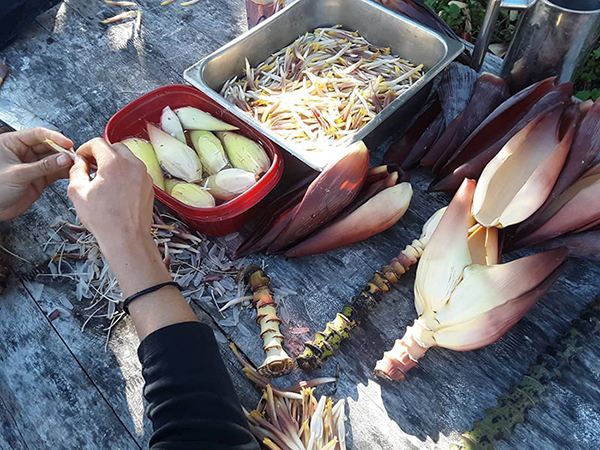INDIAN BAYOU, LA — It began along the bank of the Mississippi River, among the crawfish ponds of Southwest Louisiana, and in the sweltering swamps of the Atchafalaya Basin. Water protectors came to L’eau Est La Vie (Water is Life) Camp from near and far to protect land and water from Energy Transfer Partners’ destructive project – the Bayou Bridge Pipeline.
To some, the struggle to stop the tail end of the Dakota Access Pipeline was a failure. Even after hundreds of direct actions, lobbying days, canvassing initiatives, petitions, and banner drops, the pipeline was completed in 2019.
During the campaign however, L’eau Est La Vie, led by indigenous women, set up camp and were able to successfully defend an 11-acre property from encroachment by the pipeline company. Eventually the company was forced to reroute the pipeline, saving the land.
Water protectors then shifted gears, from fighting against the systems that are destroying the Earth, to working to grow and build systems to heal and sustain life.
Ndn Bayou Food Forest resides in that field that once grew only sugarcane, but now grows avocados, sweet potatoes, mulberries, bananas, beans, kale, figs, catfish, okra, watermelon, squash, turmeric, basil, broccoli, cabbage, collards, and traditional indigenous medicines.
Over 400 fruit trees have been propagated and will be cared for until they’re ready to be planted later this year. These and a diversity of other fruit, nut and native wetland trees are being gifted to neighbors and gardeners locally, and in neighborhoods throughout New Orleans via a partnership with the Lobelia Commons’ food autonomy initiative. These gifts are often accompanied by public demonstrations and skill-shares.
Ndn Bayou’s strategy is to amplify impact by producing and distributing not just food or medicine harvests, but the food and medicine plants themselves, thereby seeding not just one food forest but dozens, eventually hundreds.
Additionally, Ndn Bayou Food Forest has become a hub for organizing mutual aid efforts in the Deep South. During the recent hurricanes in Lake Charles, Louisiana, the property was able to host and serve several mutual aid and support initiatives.
The food forest has become an asset and model to the resiliency of the Deep South environmental justice movement, by example of food sovereignty, just transition, mutual aid support, and direct action. To those engaged in this continued initiative, and thanks to the long term vision of native women, failure was never on the table for L’eau Est La Vie Camp.
If you would like to learn more about Ndn Bayou Food Forest, check out the Instagram or Facebook pages.

